Specialist Area
As well as the core areas, candidates are required to demonstrate evidence of independent practice in one or more specialist options. This reflects the fact that, although there are common areas of work for learning technologists, practice is extremely diverse and everyone specialises in something different. Your specialist topic should reflect an area where you have particular expertise. This may be unique to you or common across your team, but goes beyond what would be expected of any learning technologist. Below are examples of some possible specialist options. You are free to choose from it, or to select a different area that reflects your expertise.
✓ Producing learning materials/content/courseware
✓ Project management, including resource management, in learning technology
✓ Training, mentoring and developing others
✓ Evaluation
✓ Research
✓ Management/administration of a sustainable e-learning process
✓ Supporting and tutoring learners
✓ Designing tools and systems
✓ Institutional development/strategic work
✓ Knowledge and application of emerging standards for learning technology
✓ Assistive technologies
✓ VLE administration and maintenance
✓ Interface design
✓ Distance learning/blended learning
✓ Managing and sourcing content
✓ Copyright
✓ Learner support
✓ Accessibility
✓ Sustainability
✓ Inclusive learning practice
✓ Open education resources (OER)
✓ MOOCs
Defining and evidencing your specialist option In describing your specialist option you should refer to the values listed at the top of these guidelines. Because these are specialist options you should be clear what makes your work distinct from common practice; many people teach on online courses, but designing and delivering fully online courses requires specific skills and would be considered specialist . Similarly, many teachers provide blended learning, but developing and sharing guidelines for such practice or working with a distinctive blend of contexts might distinguish your work as specialist. It may be that your specialist option is common amongst the group that you work in as you all work in a similar area; that is perfectly acceptable. Evidence for your specialist activity is likely to be very specific but could include: reports, papers or presentations you have written; this could be backed up by a job description plus written statements supporting your specialist knowledge from colleagues, clients or managers; active membership of professional or other bodies; certificates of completion of specialist training programmes or courses.
CMALT Guidance 2019
Specialist Area: ePortfolio and Competency Mapping
This specialist area focuses on my work designing, supporting, and evolving the use of PebblePad as a digital ePortfolio platform to meet the needs of competency-based programmes. This work extends beyond standard learning technology support, involving close collaboration with academic teams and external stakeholders to create bespoke portfolio structures aligned with both internal learning outcomes and the professional standards of regulatory bodies. It represents a sustained and specialist practice that integrates technical, pedagogical, and assessment expertise.
Description
My specialist focus is on supporting the use of PebblePad as a reflective ePortfolio and competency mapping tool across a range of programmes, particularly in health, education, and degree apprenticeships. I work closely with academic staff and external assessors to design and develop digital portfolios that align with both internal learning outcomes and the external standards required by regulatory or professional bodies 🔴CP1 & 🟢CP3.
PebblePad supports authentic, reflective student submissions. Unlike traditional assessments, ePortfolios allow students to evidence their learning journeys, linking practical experiences to academic knowledge. This reflection is visible to academics and assessors, who can track student growth over time. The nature of these reflections makes them highly personal and experience-based—something generative AI cannot easily replicate—thereby promoting academic integrity and genuine learner engagement 🔴CP1.
Much of my work has involved transitioning from paper-based portfolios to digital equivalents. I have collaborated with academics and students to refine the user experience through iterative development. This has included incorporating features such as checklists for ease of tracking, restructuring criteria into tabbed formats (rather than a single scroll-heavy page), and embedding dedicated feedback fields for academic and external assessor input. These enhancements not only streamline the assessment process but also improve accessibility and engagement for users 🔴CP1 & 🟢CP3.
A key part of my role is also training staff and students in how to effectively evidence competencies. For example, I’ve demonstrated how a single asset (such as a written reflection or evidence) can be tagged and mapped to multiple domains, whilst having unique justification, this is particularly valuable in Degree Apprenticeship programmes, where students must show evidence against specific Knowledge, Skills and Behaviours (KSBs). I ensure that both academic teams and assessors understand how to access, navigate, and interpret this evidence efficiently within PebblePad 🟢CP3 & 🔵CP4.
Reflection
Working with ePortfolios in PebblePad has significantly influenced both my technical practice and my pedagogical understanding. At the start of this journey, my focus was largely on ensuring the portfolios functioned technically, meeting the minimum requirements for evidence collection and assessment. Over time, however, I’ve come to see ePortfolios as powerful tools for learner engagement, reflective practice, and professional identity formation 🔴CP1.
Supporting competency-based learning, particularly within regulated professions like nursing and teaching, has highlighted the importance of aligning portfolio structure with the real-world expectations of professional bodies. This alignment demands more than a literal mapping of standards; it involves designing portfolio experiences that help learners see how their daily actions and reflections connect to broader domains of practice. Helping staff visualise and scaffold these connections has become a central part of my role 🟢CP3.
One of the most meaningful developments in my practice has been recognising how digital portfolios support authentic learning. Because PebblePad supports rich, reflective, and multimedia content, students can shape their own development in ways that are deeply personal and situated in their lived experiences, something traditional written assessments often miss. This, in turn, encourages more honest and meaningful engagement from learners, especially those in practice-based settings 🔴CP1.
I’ve also learned how important it is to support external stakeholders—such as assessors and placement mentors—who sit outside the institution’s core systems and culture. Their engagement is vital, yet they often face technical and conceptual barriers to participating in digital assessment. Designing intuitive workflows for them has deepened my understanding of inclusive design and the importance of empathy in edtech 🟢CP3.
Ultimately, this specialist work has shifted how I view my role. I am not just configuring digital tools, I am co-creating learning environments that help students make sense of their professional development, and support educators and assessors in evaluating growth and readiness for practice. This has been one of the most rewarding and intellectually challenging aspects of my work to date 🔴CP1 & 🔵CP4.
Evidence
Development of Portfolios – Word based to PebblePad and reiterations
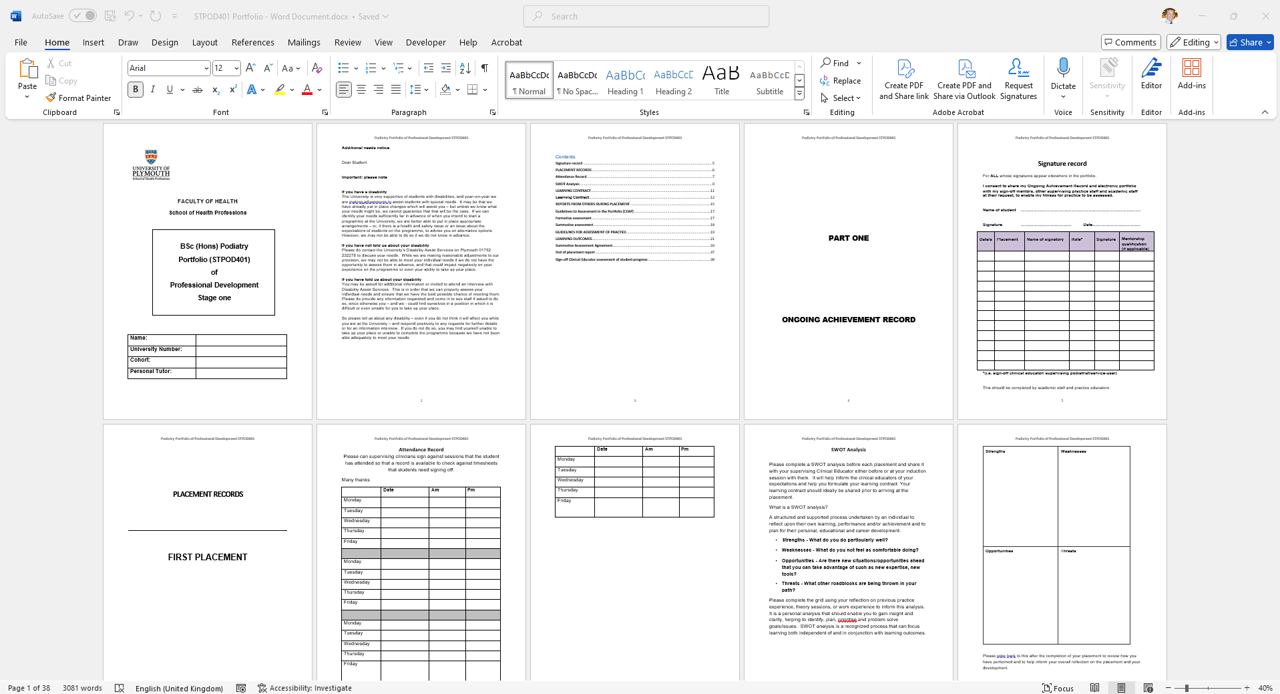
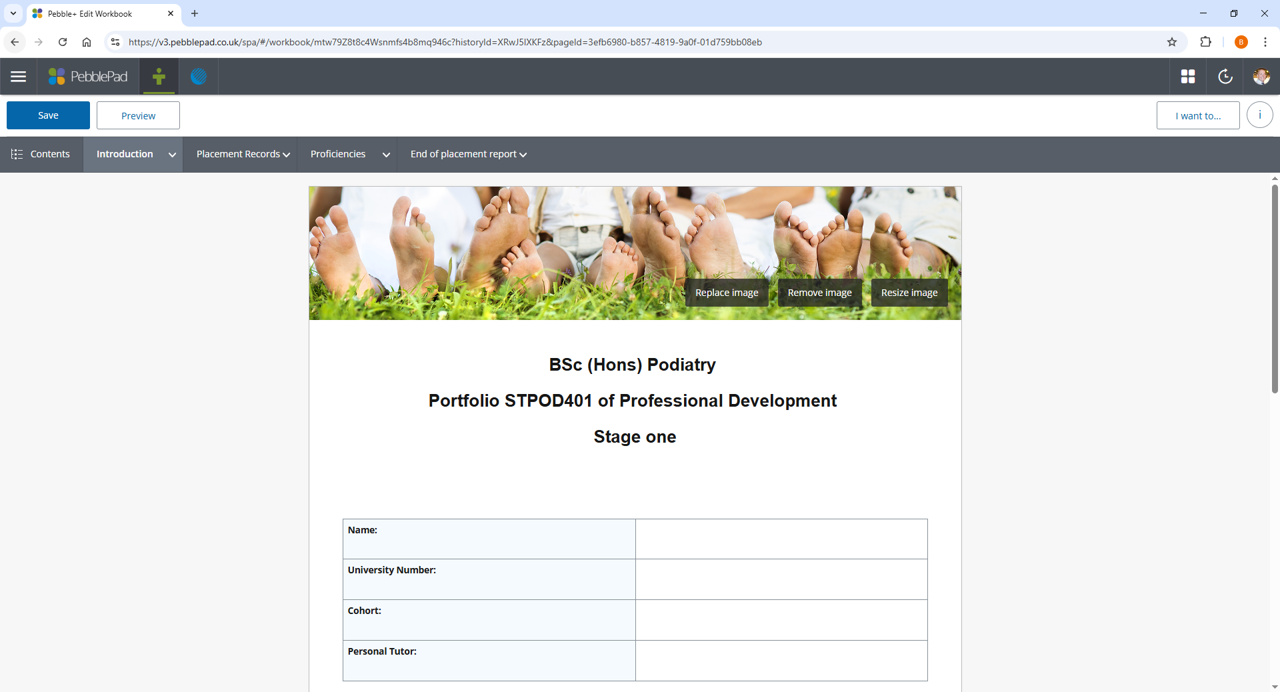
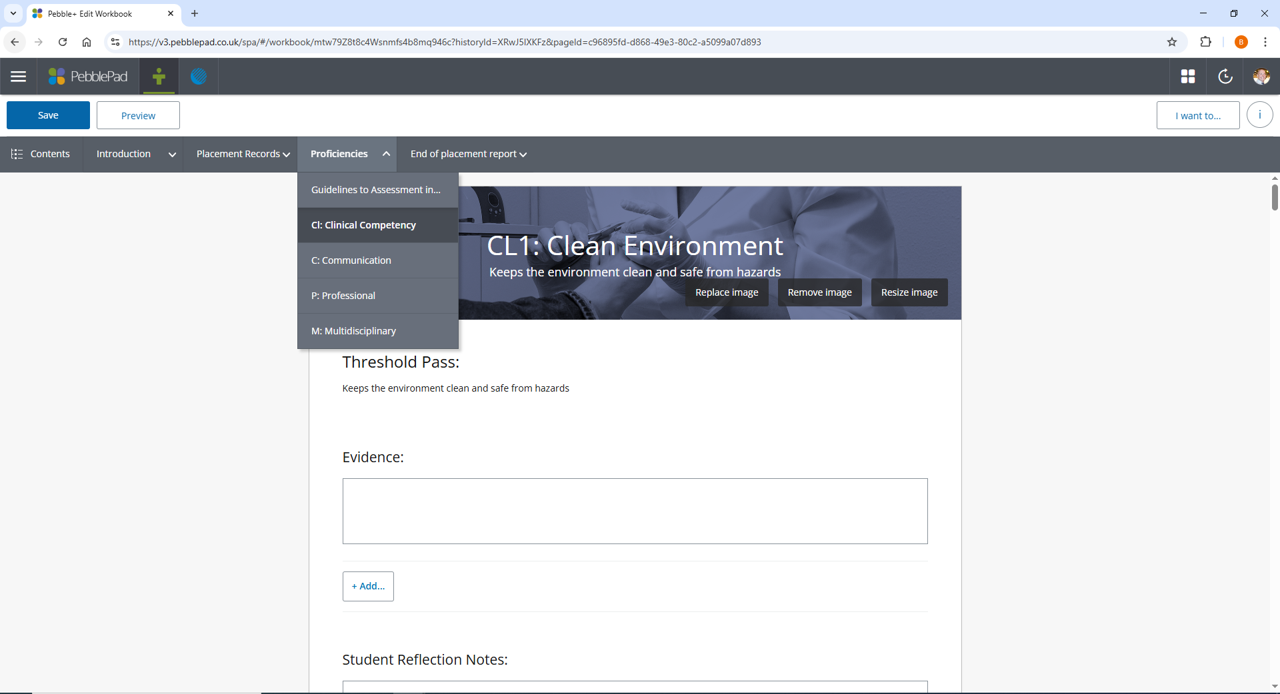
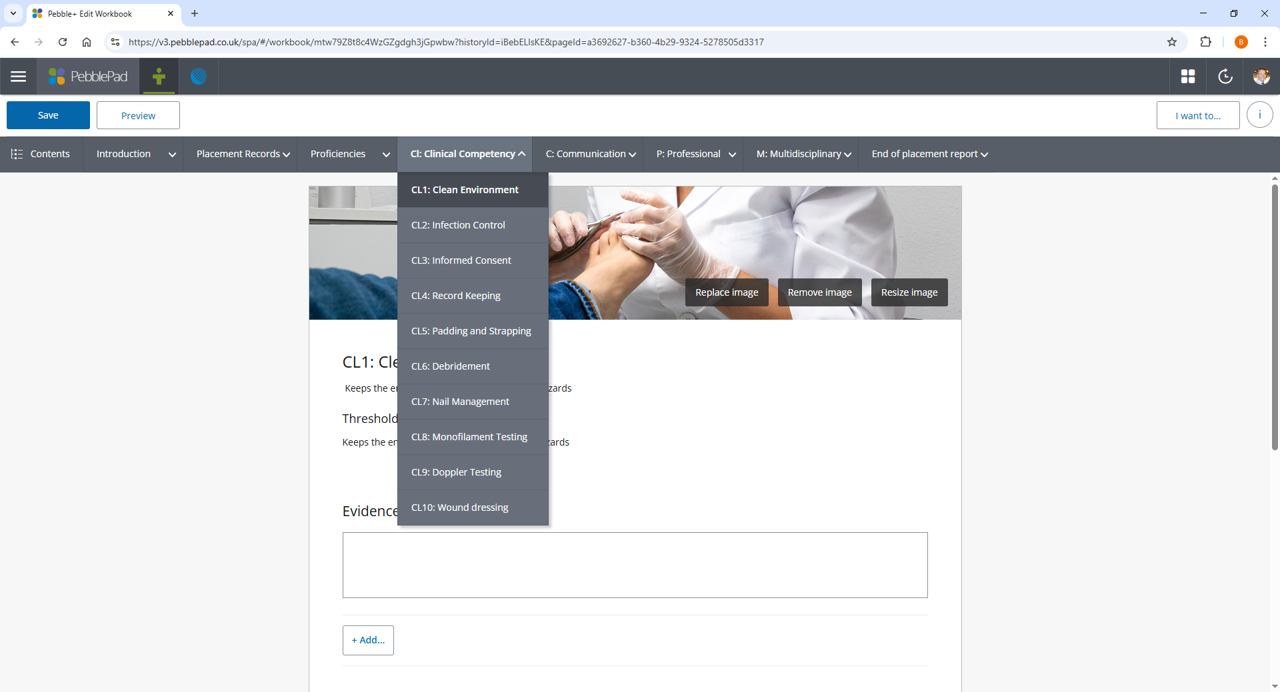
Lorem ipsum dolor sit amet, at mei dolore tritani repudiandae. In his nemore temporibus consequuntur, vim ad prima vivendum consetetur. Viderer feugiat at pro, mea aperiam
Student Evidence Mapping
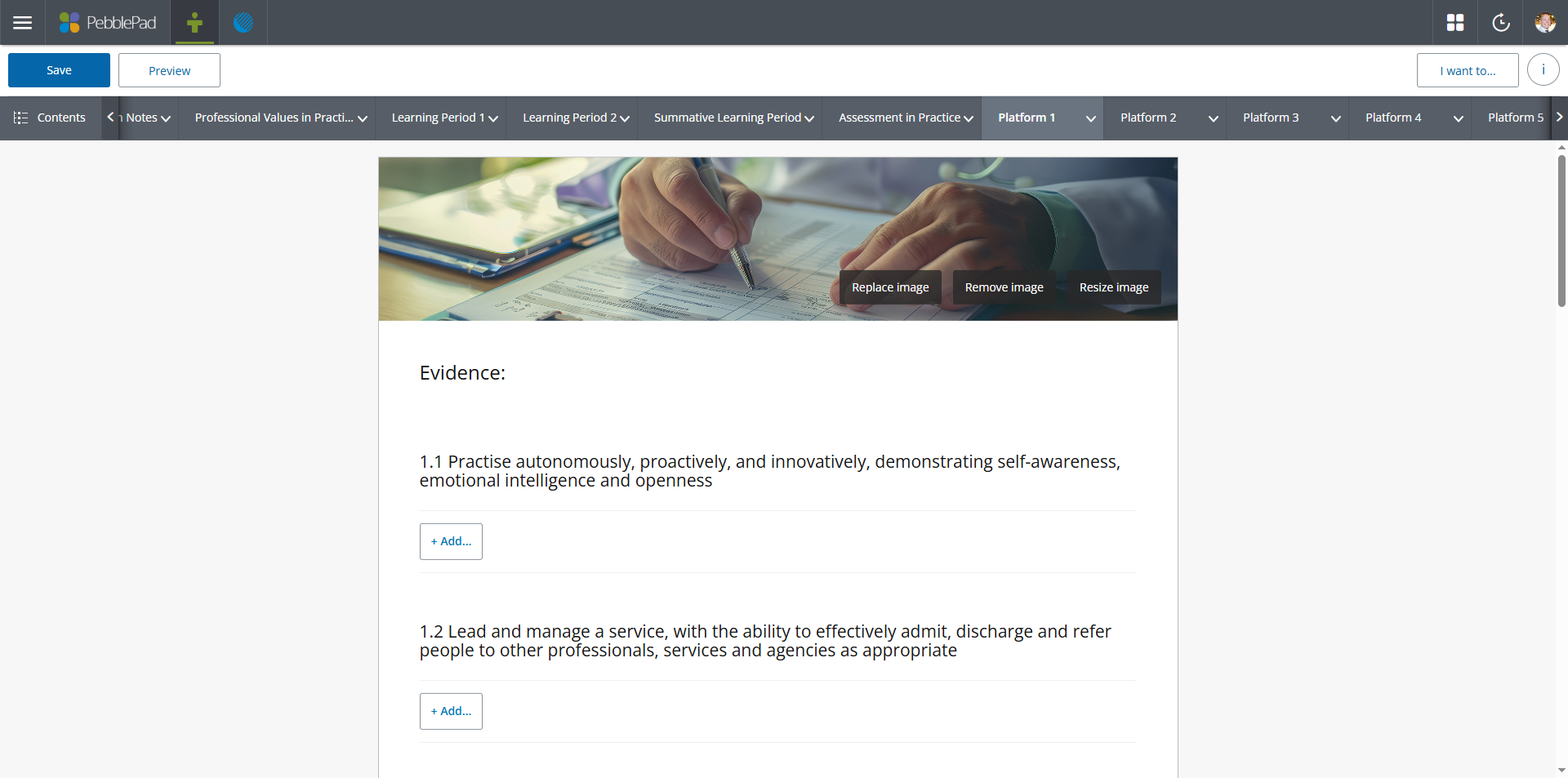
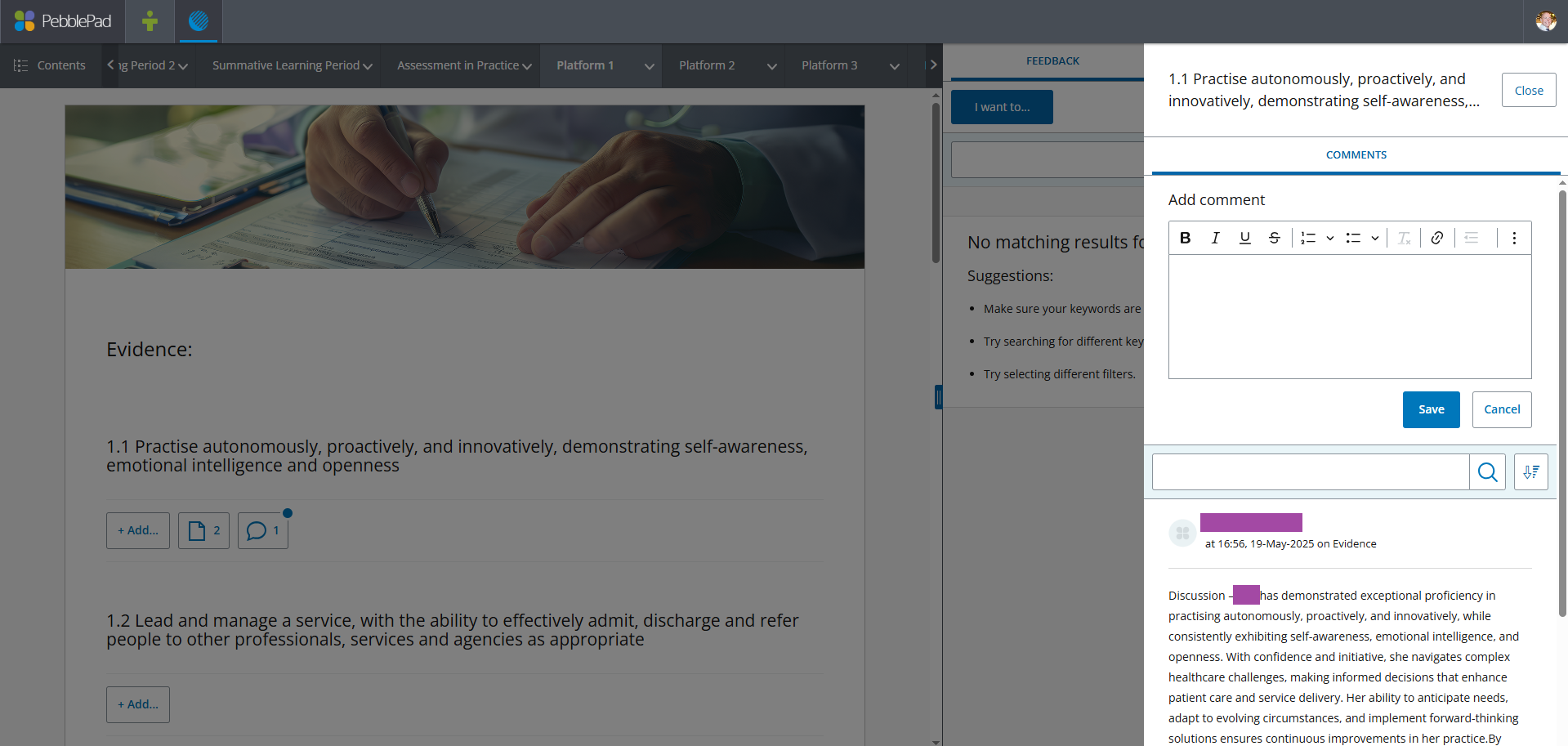

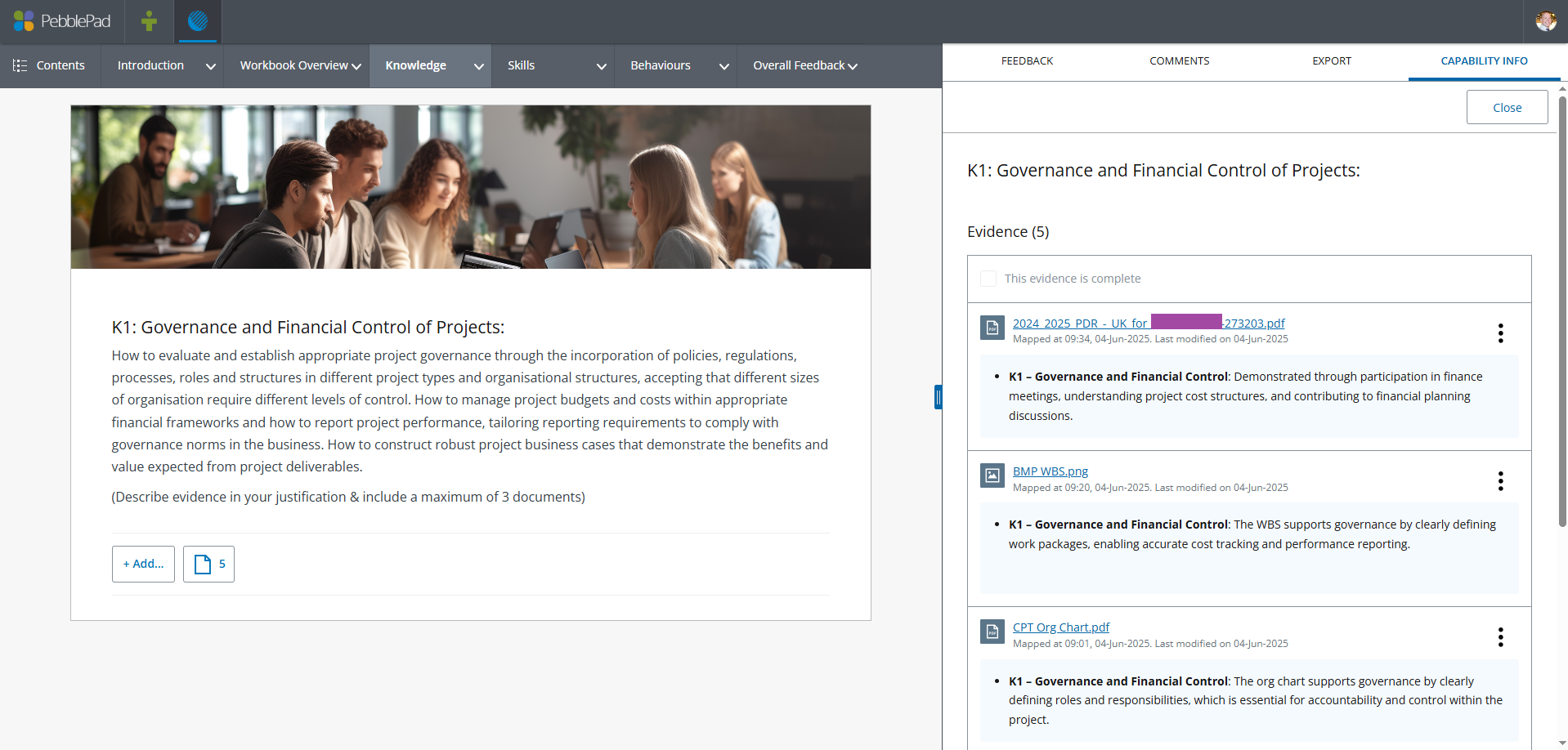
Lorem ipsum dolor sit amet, at mei dolore tritani repudiandae. In his nemore temporibus consequuntur, vim ad prima vivendum consetetur. Viderer feugiat at pro, mea aperiam
Screen recording – Add Evidence in PebblePad
Lorem ipsum dolor sit amet, at mei dolore tritani repudiandae. In his nemore temporibus consequuntur, vim ad prima vivendum consetetur. Viderer feugiat at pro, mea aperiam
Academic Feedback
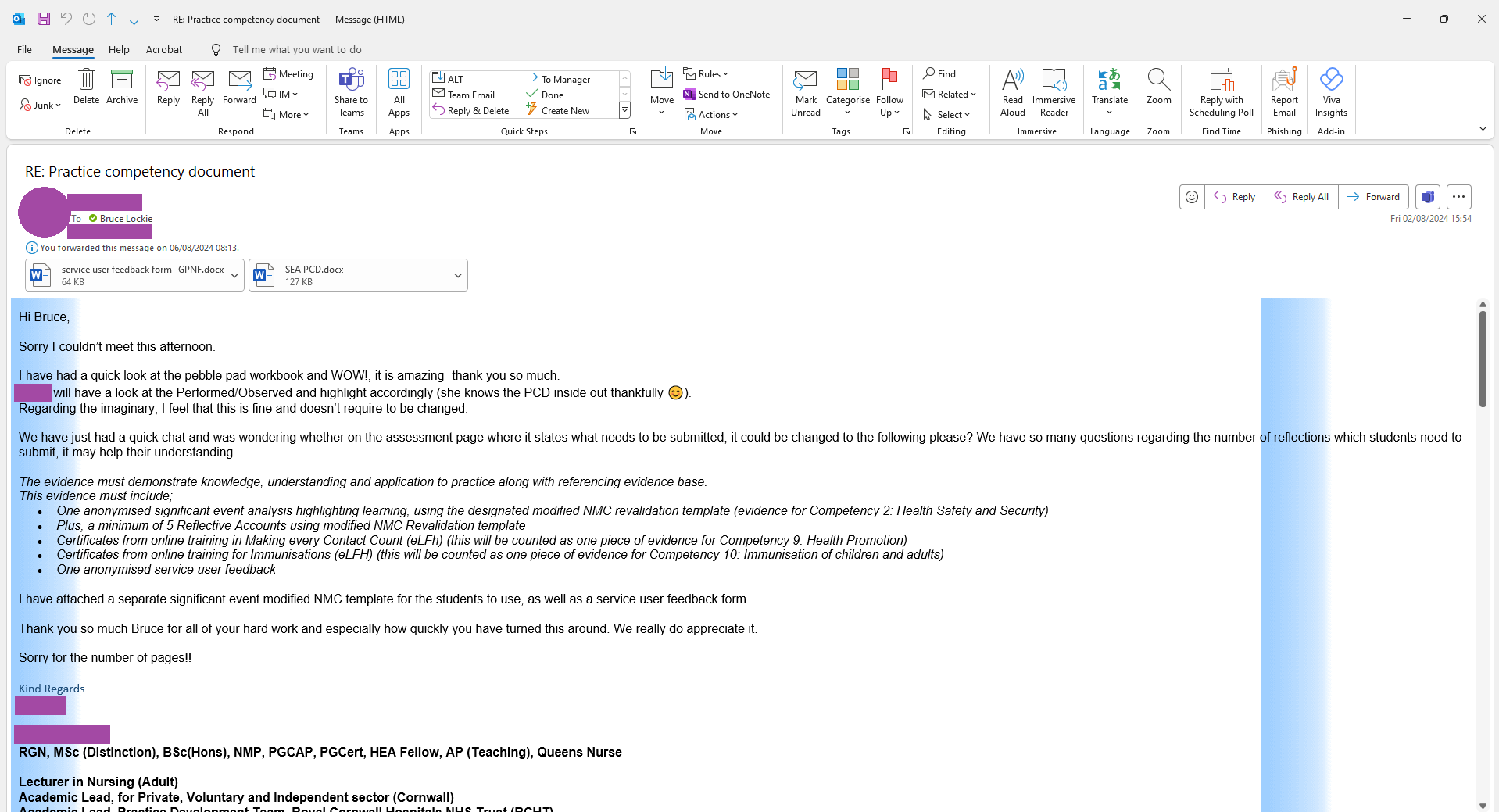
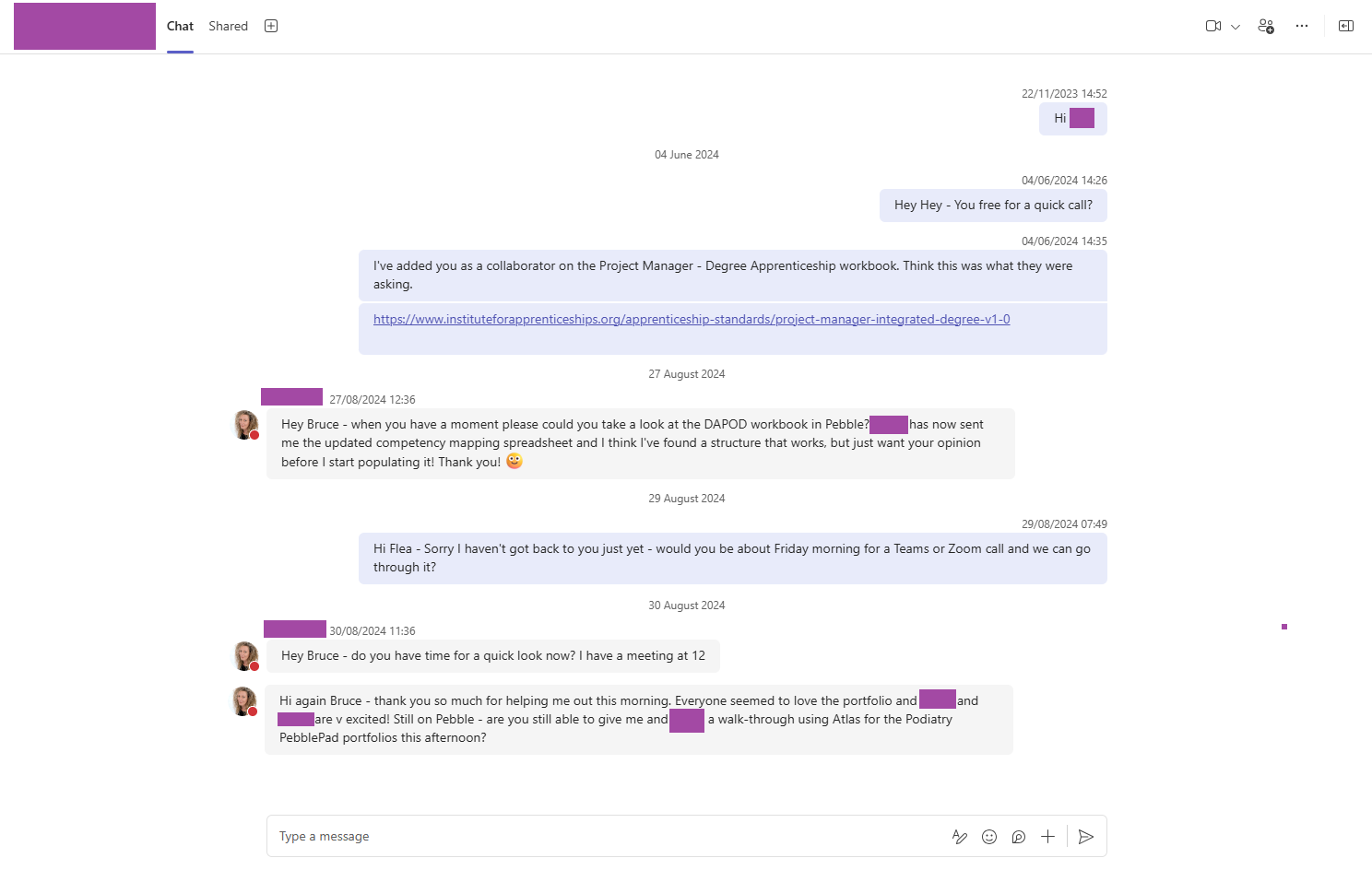
Lorem ipsum dolor sit amet, at mei dolore tritani repudiandae. In his nemore temporibus consequuntur, vim ad prima vivendum consetetur. Viderer feugiat at pro, mea aperiam
PebblePad – Academic Support
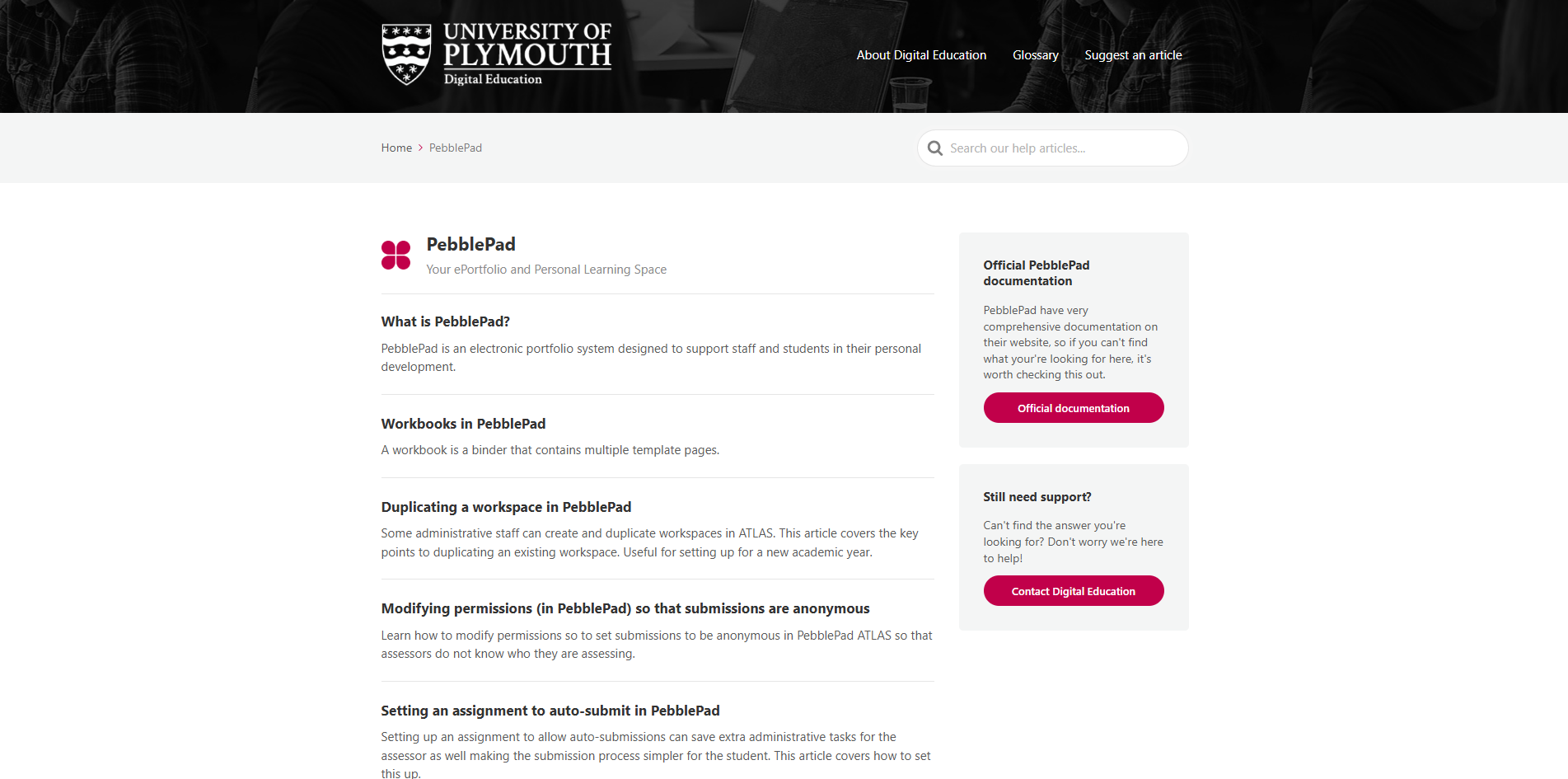
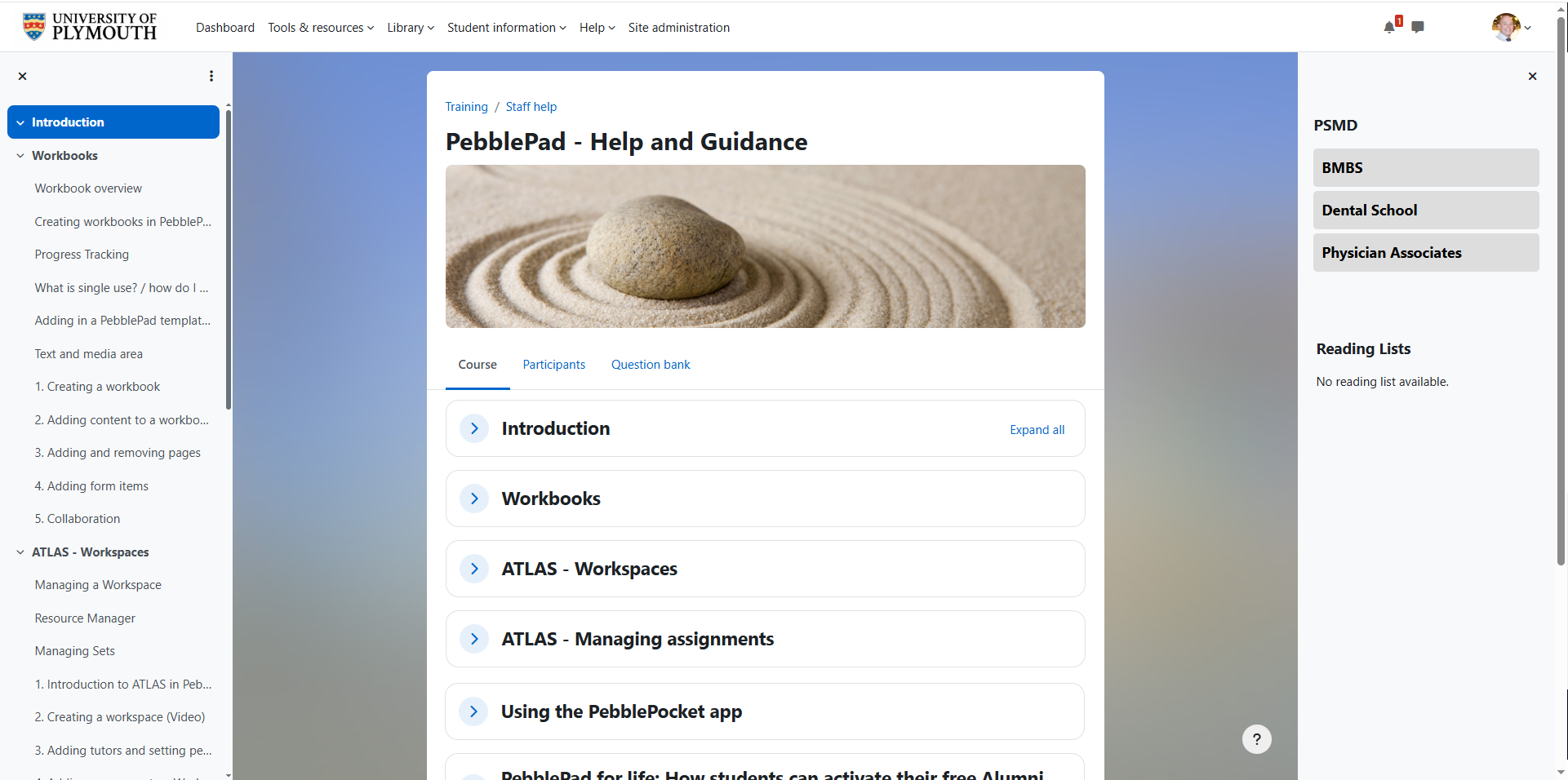
Lorem ipsum dolor sit amet, at mei dolore tritani repudiandae. In his nemore temporibus consequuntur, vim ad prima vivendum consetetur. Viderer feugiat at pro, mea aperiam
Core Principle Values
🔴CP1: A commitment to exploring and understanding the interplay between technology and learning.
🟡CP2: A commitment to keep up to date with new technologies.
🟢CP3: An empathy with and willingness to learn from colleagues from different backgrounds and specialist areas.
🔵CP4: A commitment to communicate and disseminate effective practice.